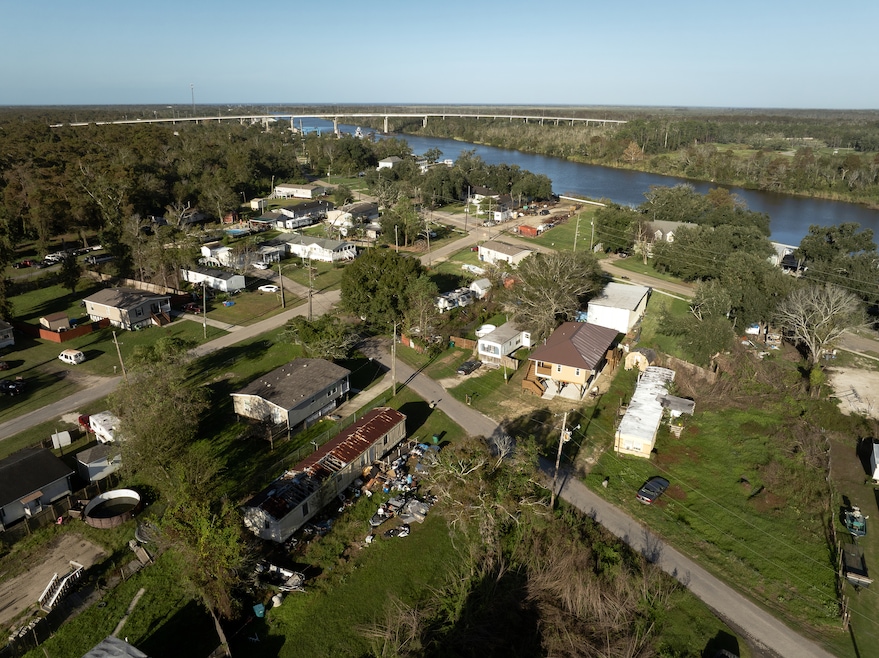As the states around the Gulf of Mexico face threats of rising seas and increasingly powerful hurricanes, a contest is underway that seeks to improve the resiliency of communities across the region.
The Gulf Futures Challenge this week released its list of 10 finalists that will compete for a total of $50 million in project funding.
Organizations and universities across the five Gulf states – Florida, Alabama, Mississippi, Louisiana and Texas – submitted ideas to use science, engineering and medical research to address critical and idiosyncratic challenges.
“We’ve learned that the best ideas come from learning, designing and building with communities,” Mackenzie Stagg of Auburn University’s College of Architecture, Design and Construction told Homes.com. “The Gulf Futures Challenge will allow us to expand our work in communities, particularly rural communities, to increase economic vibrancy, ecological diversity, and resilience in the face of storms and flooding.”
Titled “Ready to Adapt: Building the Rural Working Coast through Design,” Auburn’s project focuses on areas such as green stormwater management and what it calls “high-performance housing” to reduce climate risks.
Stagg said that housing performance is measured in four categories: efficiency, durability, wellness and how it strengthens a community. “That talking about how houses become neighborhoods that become communities,” she said.

For example, much of the Auburn team's work looks at adding infill housing to existing neighborhoods. “So, it’s strengthening those neighborhoods by adding density,” Stagg said.
Oil spill to innovation
The contest was created by Gulf Research Program, an arm of the National Academies of Sciences, Engineering and Medicine. The GRP was created out of a $500 million endowment from BP following the Deepwater Horizon oil spill in 2010, with the intention of “improving life in the Gulf States with science,” according to director of communications Pete Nelson.
The program has funded other projects in the past with narrower scopes, Nelson told Homes.com. “This time, we thought, ‘Why don’t we do something really big?’”
For a competition of this size and complexity, the GRP partnered with philanthropic nonprofit Lever for Change to manage the contest. An affiliate of the MacArthur Foundation, Level uses an open call approach to gather ideas and funding.
The 10 finalists were selected from 164 applicants over the course of more than a year. Each of the finalist teams will receive $300,000 development grants and technical assistance to strengthen proposals.
After finalists submit revised proposals, two teams will be awarded $20 million each for implementation of their ideas. The remaining eight teams will be eligible for up to $875,000 in assistance for their programs. The winners will be announced early next year, according to Nelson.
Aside from Auburn, other finalists include:
- A collaboration between the University of Florida and the University of Texas to study new structures that can dissipate destructive wave energy.
- Louisiana State University and partner organizations addressing flooding and electricity insecurity.
- A plan to equip institutions with solar and battery microgrids to protect against outages from the Greater New Orleans Foundation and others.
- The Louisiana Public Health Institute’s Gulf Hub, working with partners, building disaster preparedness and research capabilities into health centers.
- A clean energy hub from Louisiana State University et al.
- Mississippi State University and Mississippi Commercial Fisheries teaming up to study the effects of PFAS chemicals’ impacts on aquatic and human health.
- Using batteries to create sustainability in underserved communities, designed by the University of Texas Rio Grande Valley and partners.
- The Gulf Offshore Research Institute’s plans to convert idle offshore oil infrastructure into marine habitats and facilitate a transition to green hydrogen.
- A project from the University of Houston, Tulane University and others to build coastal structures from decommissioned wind turbine blades.
